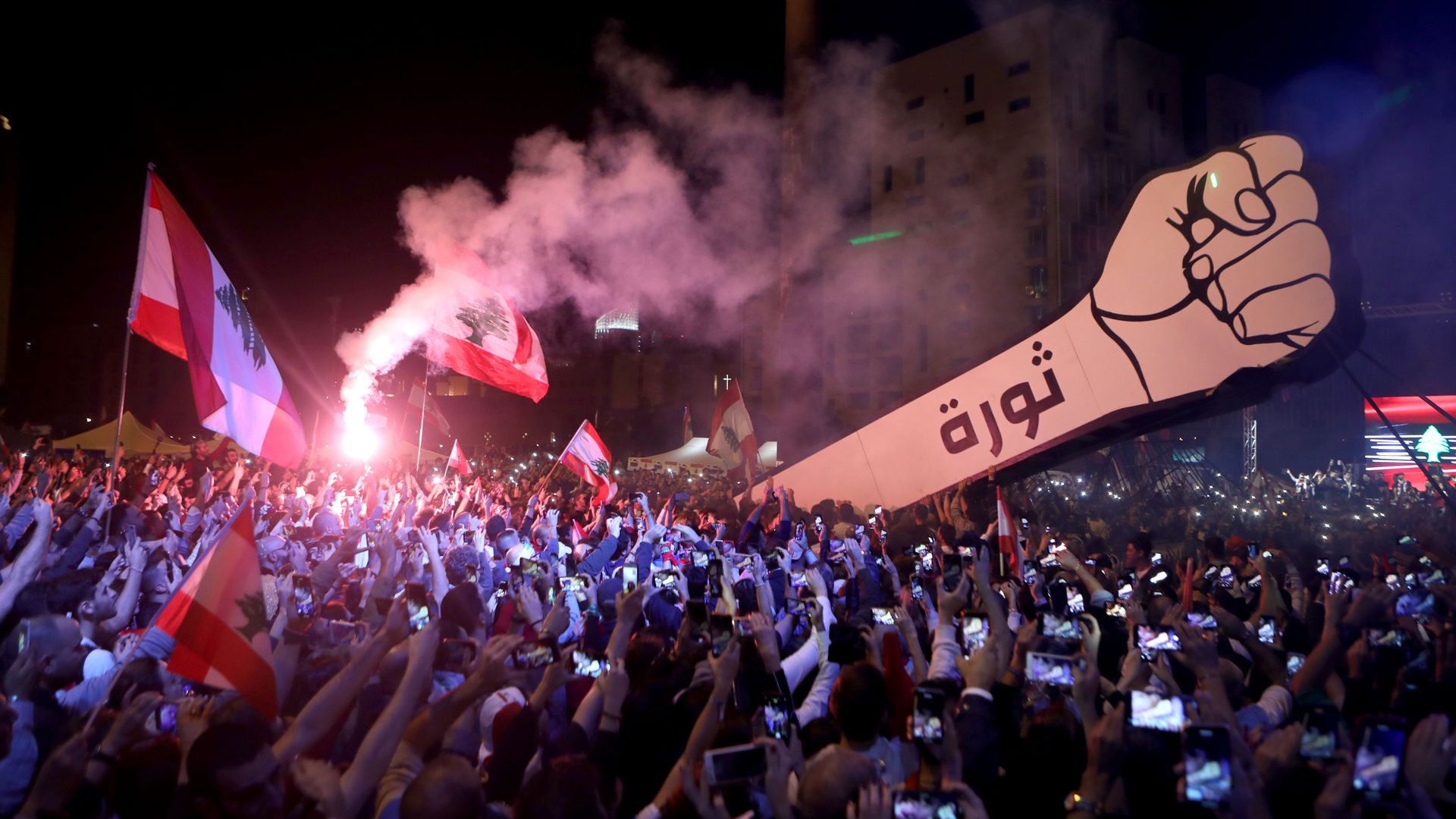Lebanon's economy on the brink as protests unite sectarian camps
Add Axios as your preferred source to
see more of our stories on Google.

Demonstrators in Beirut's Martyr's Square on Nov. 22. Photo: Patrick Baz/AFP via Getty Images
As Lebanon continues to be rocked by widespread protests — seemingly sparked in mid-October by uncontrolled wildfires and a proposed WhatsApp tax — the country faces increasing risk of economic collapse.
The big picture: The current crisis has been brewing for some time, and a descent into conflict is not out of the question. Lebanon has been an ally to the U.S. and Europe in its troubled neighborhood, but is struggling under threats from Iran-controlled Hezbollah, interference by Russia and China, and the world's highest proportion of refugees.
Where it stands: An estimated $3.8 billion has been withdrawn from Lebanese banks over the past month, signaling lack of trust in the financial system, the economy and a political system deeply intertwined with both.
- This bank run portends economic collapse, especially when coupled with a debt-to-GDP ratio over 150%, the third highest in the world.
Background: In Lebanon's "confessional" system, power is divided across religious and ethnic political parties. This practice has entrenched corruption and consolidated wealth among an elite class, while incentivizing political leaders to maintain power by stoking sectarian divisions.
- The protests are motivated by a broadly shared, non-sectarian consensus that elites are not only corruptly benefiting from their power but destroying the national economy through poor governance.
Between the lines: Terrorist organization Hezbollah has benefited from the confessional system and was caught off guard by its inability to get its supporters off the streets.
- Hezbollah has dispatched thugs to disrupt protests, without much success, and has blamed the entire movement on outside interference. The group has presented anti-Iran messaging from Secretary of State Mike Pompeo as "proof" of this conspiracy theory.
What to watch: The protests have remained largely peaceful, though the risks of international meddling and sectarian conflict loom.
- Economic reforms that could benefit Lebanon will be politically difficult to achieve. Demonstrators are unlikely to accept leadership by non-technocrats from existing political elite networks, such as the president's son-in-law.
- The neutrality of the Lebanese Armed Forces (LAF) has been an important stabilizing force, making the Trump administration’s freeze of military aid to Lebanon — against congressional wishes — counterproductive.
Erol Yayboke is a senior fellow and deputy director of the Project on Prosperity and Development at the Center for Strategic and International Studies.
